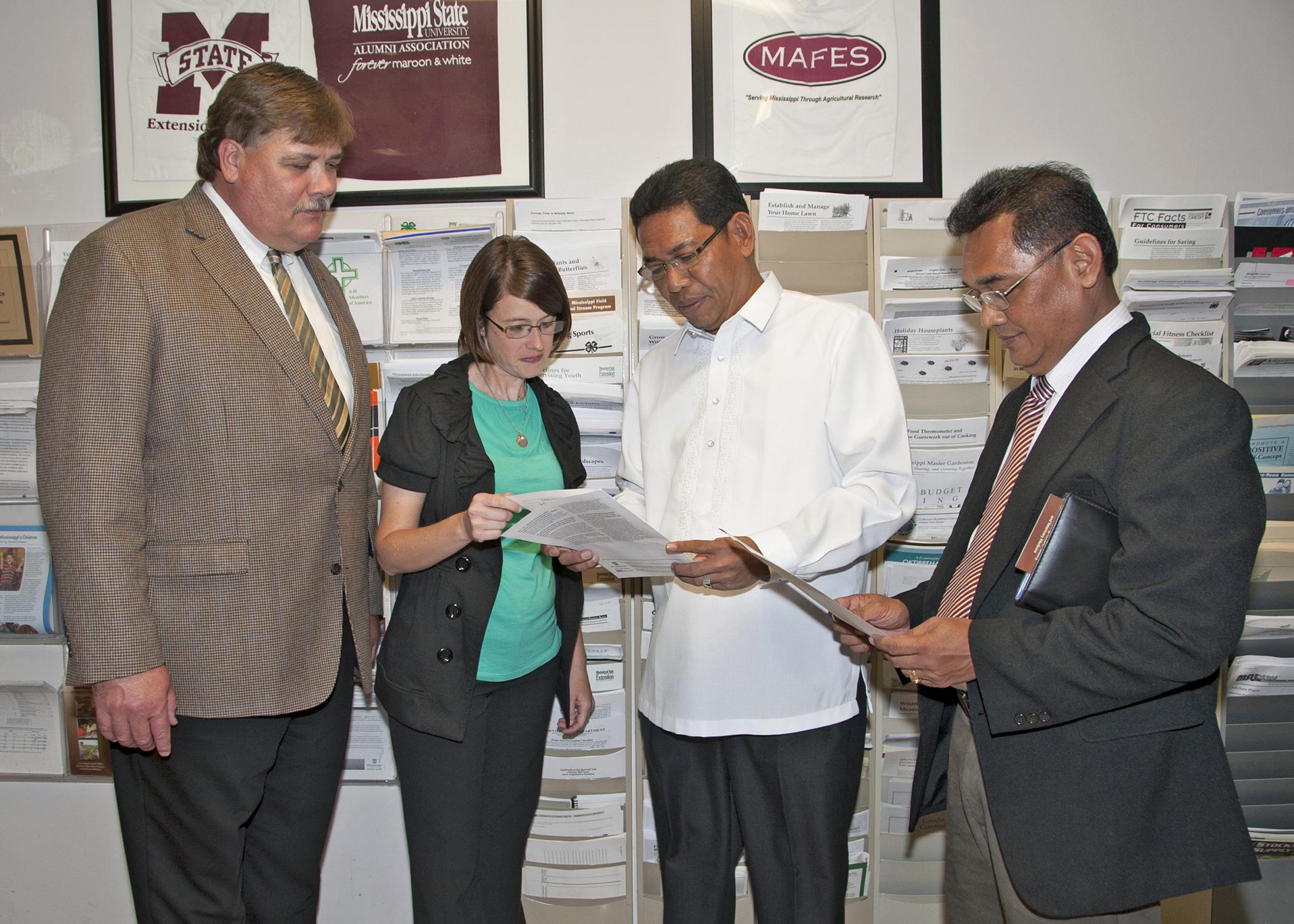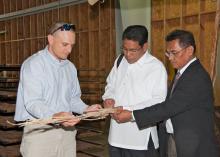Information Possibly Outdated
The information presented on this page was originally released on May 31, 2013. It may not be outdated, but please search our site for more current information. If you plan to quote or reference this information in a publication, please check with the Extension specialist or author before proceeding.
MSU Extension hosts international visitors
MISSISSIPPI STATE – Mississippi’s major land-grant university recently hosted a delegation from the Philippines who wanted to learn more about the Extension Service -- everything from federal funding to local county programming.
Mississippi State University Extension Service Director Gary Jackson provided an overview of the state’s programs and arranged for a visit to the Oktibbeha County Extension Office.
“Extension has been a part of American life for almost a century, so we often take for granted what it provides,” he said. “It was interesting to hear of the differences in topics Extension covers in the Philippines, how their country’s program provides information and how they are funded.”
Jackson said the variety of publications on the wall at the county office was the perfect visual aid for the visit. By looking at the information options, the visitors could better understand the diversity of Extension topics and target audiences.
“They seemed surprised to see publications on marriage and family, on financial issues and on health and nutrition right in there with horticulture and forestry topics,” he said.
While on campus, the group also visited the Franklin Furniture Center and received an overview of the state’s forest and catfish industries.
Edilberto DeLuna, assistant secretary for the Philippines Department of Agriculture, said the group is observing land-grant universities in the United States to learn ways to improve the information delivery system of the Philippines Extension program.
“One major difference can be found in the 4-H program,” he said. “In the Philippines, the target audience is 19 to 30 years of age, and it is exclusively agricultural programming.”
In the United States, 4-H is a youth development program primarily for 8- to 18-year-olds focusing on many subjects beyond agriculture.
“I would like to see the Philippines target youth and more issues than just agriculture,” DeLuna said.
Asterio Saliot, national director of the Agricultural Training Institute with the Philippines Department of Agriculture, said he focused on the administrative side of the Extension Service during the visit.
“Extension programs in the Philippines are handled by local government units, state universities and the private sector. They lack continuity of purpose,” he said. “We need a stronger link between university research and extension programming and between the national levels and the local government sector, similar to what is found at MSU and other land-grant universities in the U.S.”
Saliot said he also sees value in the great variety of subjects the Extension Service assists with in the United States.
During their visit to the United States, the group is making stops at four other land-grant schools: North Carolina State University, the University of Georgia, Auburn University and Louisiana State University.




